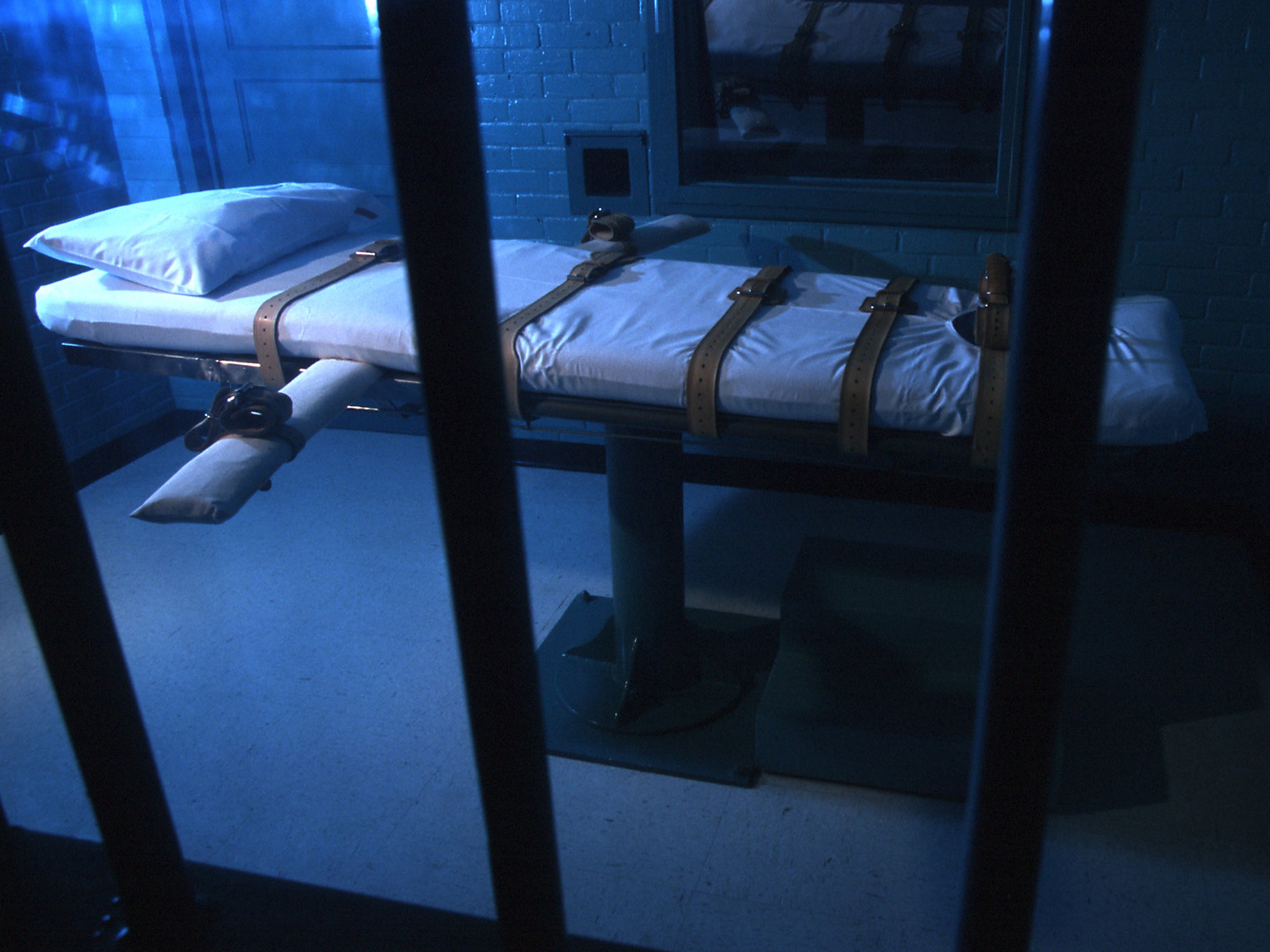Arkansas governor schedules mass death row execution to use up lethal injection drug before it expires
Lawyers are battling to stop what they describe as ‘execution by assembly line’

Your support helps us to tell the story
From reproductive rights to climate change to Big Tech, The Independent is on the ground when the story is developing. Whether it's investigating the financials of Elon Musk's pro-Trump PAC or producing our latest documentary, 'The A Word', which shines a light on the American women fighting for reproductive rights, we know how important it is to parse out the facts from the messaging.
At such a critical moment in US history, we need reporters on the ground. Your donation allows us to keep sending journalists to speak to both sides of the story.
The Independent is trusted by Americans across the entire political spectrum. And unlike many other quality news outlets, we choose not to lock Americans out of our reporting and analysis with paywalls. We believe quality journalism should be available to everyone, paid for by those who can afford it.
Your support makes all the difference.Lawyers are fighting to stop the planned execution of eight death row inmates within 11 days in the same state.
Arkansas Governor Asa Hutchinson sanctioned the executions, starting 17 April, as he said the state needed to use up its last batch of a sedative called midazolam before it expires and becomes unavailable.
If the lawyers’ do not win their case, Don Davis and Bruce Ward will be given the lethal injection next week. Three days after, Stacey Johnson and Ledell Lee will die. On 24 April it will be the turn of Marcel Williams and Jack Jones. The last prisoner to be executed is Kenneth Williams on 27 April.
The legal case will be presented to a federal judge in eastern Arkansas on Monday They will argue that a condensed spate of deaths could prompt mistakes and suffering of inmates and employees.
Such was the case of Clayton Lockett, who was in agony for 43 minutes during his execution after authorities in Oklahoma were stressed about killing two people in one night and made mistakes. The prison warden described it as a “bloody mess”. Oklahoma imposed a new rule that executions must be scheduled seven days apart.
The four white men and four black men scheduled to die in Arkansas are among the 35 inmates on death row in the state, and were convicted of murders between 1989 and 1999.
Brian Stull of the American Civil Liberties Union wrote in a blog that the state is “rushing to kill” these eight men.
“By racing to use a drug known to play a part in botched executions, the governor risks debasing the state of Arkansas, its citizens, and the very American traditions of justice by torturing prisoners to death,” he said.
Midazolam is a sedative normally used in hospital for minor procedures, and Mr Stull argued that when it is combined with two other drugs normally used, vecuronium bromide and potassium chloride, it “produces unspeakable pain before death”.
Florida and Arizona scrapped using the drug.
In March, Mr Hutchinson said at a press conference: “I would love to have those extended over a period of multiple months and years, but that’s not the circumstances that I find myself in. And, again, the families of the victims that have endured this for so many years deserve a conclusion to it.”
Judge Kristine Baker, who was appointed to US District Court for the Eastern District of Arkansas by President Barack Obama, will consider the case. Since joining in 2012, she has made key rulings on abortion and gay marriage, but this will be her first death penalty ruling.
The executions were set in February, and is the first time for such a high number and in such quick succession since the US resumed the death penalty in 1977, according to the Death Penalty Information Center.
Even in Arkansas, the last execution was 12 years ago. The drug for the planned lethal injections has also been administered in the botched executions of several death row inmates across the US, including Dennis McGuire in Ohio, Joseph Wood in Arizona, both in 2014, and Ronald Smith in Alabama.
Yet according to a recent Talk Business & Politics-Hendrix College survey, 61 per cent of people in Arkansas support the death penalty and 51 per cent said they supported the eight executions.
The last man to be executed in Arkansas, Kenneth Williams, was sentenced to death for murdering Cecil Boren during an attempted escape after starting a life sentence for the murder of student Dominique Hurd. He confessed to a third murder and killed a fourth person in a traffic accident during his escape.
He told Deborah Robinson, who is writing about the eight inmates, that he had “truly learned [his] lesson to value other people’s lives”.
He described how the prison officer had asked him for his clothing measurements.
“Talk about the lamb being sized up before the slaughter," he said.
"I thought: Have they forgotten I am human, or do they just not care? Then I thought: Wasn’t it my disregard for human life that got me in this situation to begin with?”
Subscribe to Independent Premium to bookmark this article
Want to bookmark your favourite articles and stories to read or reference later? Start your Independent Premium subscription today.
Join our commenting forum
Join thought-provoking conversations, follow other Independent readers and see their replies
Comments